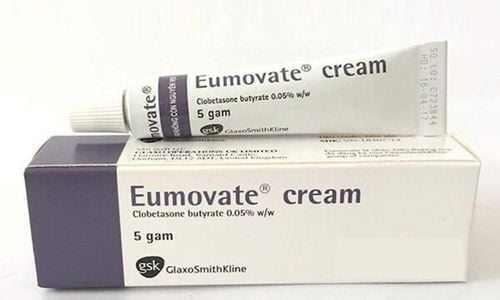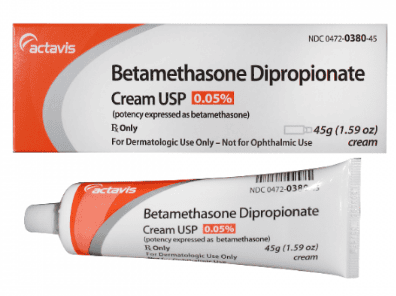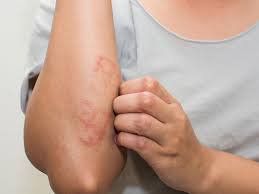This is an automatically translated article.
The article was professionally consulted with Specialist Doctor I Tran Van Sang - Dermatologist - Department of Medical Examination & Internal Medicine - Vinmec Danang International General Hospital.Contact dermatitis is a condition in which the skin reacts when it comes in contact with an irritant or allergic agent such as a chemical, metal, insect, etc. Symptoms of skin redness, itching, burning... often appear. in contact with the agent. Treatment of contact dermatitis requires the use of anti-allergic drugs to reduce itching and topical anti-inflammatory drugs. The article will help readers understand contact dermatitis and how to prevent it.
1. What is contact dermatitis?
Contact dermatitis is divided into two types: irritant contact dermatitis and allergic contact dermatitis.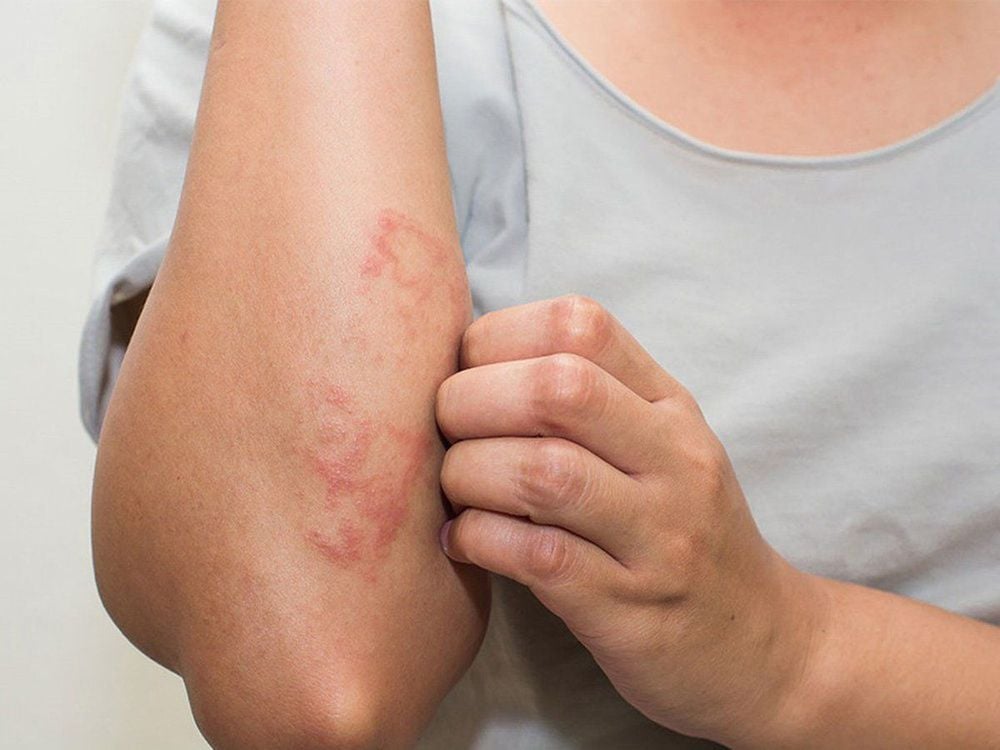
2. What is irritant contact dermatitis?
Irritant contact dermatitis occurs when the skin is damaged during exposure to environmental factors such as cold weather, direct contact with chemicals such as acids or alkalis, and other cleaning agents.Children when using a lot of diapers can have redness on the buttocks and groin due to irritant dermatitis.
Symptoms of irritant contact dermatitis:
Damaged skin at the contact site. Appears red patches, with clearly defined areas. In some cases, blisters or blisters appear on the surface, which are swollen and possibly itchy.
In some cases of mild irritation from contact with water and soap, dry, itchy, cracked skin may develop over several weeks. Then the crack peels off.
If there is strong irritation due to contact with detergents, alkaline chemicals, strong acids, blisters on the skin, swelling and pain may occur.
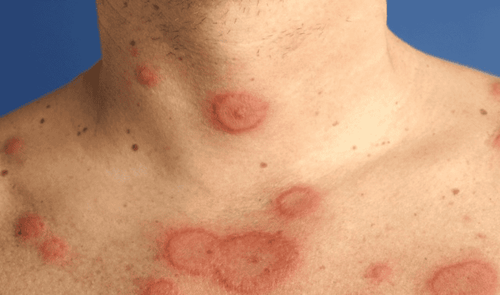
3. Causes of Irritant Contact Dermatitis
Due to the skin surface contact with chemicals or physical agents that destroy the surface. Detergents cause damage to the skin. When irritants grind away the layer of moisturizer on the surface of the skin, chemicals penetrate more easily and deeper into the skin, causing damage to the skin.The extent of skin damage from irritant contact depends on:
The dose of the irritant in contact with the skin; Time and frequency of exposure more or less; Skin nature thick or thin External factors such as temperature, humidity. Almost all external environmental factors can be the cause of allergic contact dermatitis such as chemical products, alcohol, perfumes, poor quality rubber, detergents. , hair dyes, deodorants...
Symptoms of Allergic Contact Dermatitis Allergic Contact Dermatitis occurs after a few hours of skin contact with an allergen, divided into 3 levels: Acute acute, subacute, chronic
Acute allergic contact dermatitis
Red, itchy, well-defined patches appear, edema, papules at the site of contact and gradually spread to other skin areas.
In case of strong reaction, there will be blisters in patches. When the blister ruptures, it leaves an exudate and crusted with exudate. Possibly itchy.
Patient has a burning sensation.
Subacute allergic contact dermatitis
The appearance of burning skin patches, slight red color, small size, dry skin scales peeled off, skin patches with small red spots.
Chronic allergic contact dermatitis
Deep skin folds into lines, scaly skin. Along with that are small, round papules, or scratches, red inlaid.
How to recognize contact dermatitis? Skin diseases have similar manifestations, so it is best to visit a medical facility to be examined by a doctor. If necessary, the doctor can assign you to do in-depth testing by skin culture test, blood test ... to know the exact cause of allergies, skin irritation. You need to pay attention to know that you have been exposed to something that causes skin irritation or allergy and stop that contact immediately.
Prevention of allergic contact dermatitis To reduce the risk of contact dermatitis, direct contact with irritants and known allergens should be avoided. strong, avoid being affected by external factors
Use gloves when in contact with cleaning agents, chemicals
Use topical medications as prescribed by a doctor.
Please dial HOTLINE for more information or register for an appointment HERE. Download MyVinmec app to make appointments faster and to manage your bookings easily.







